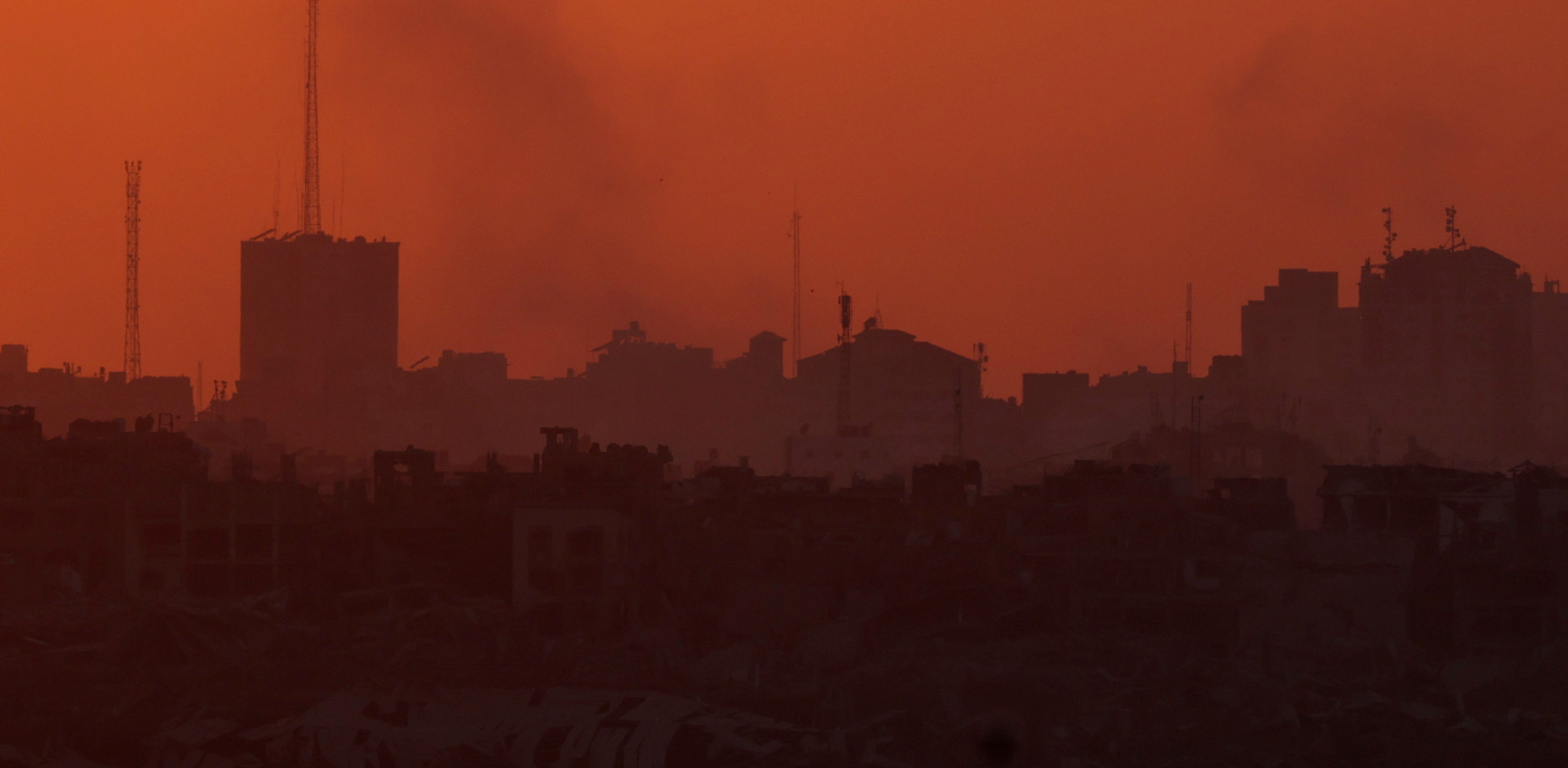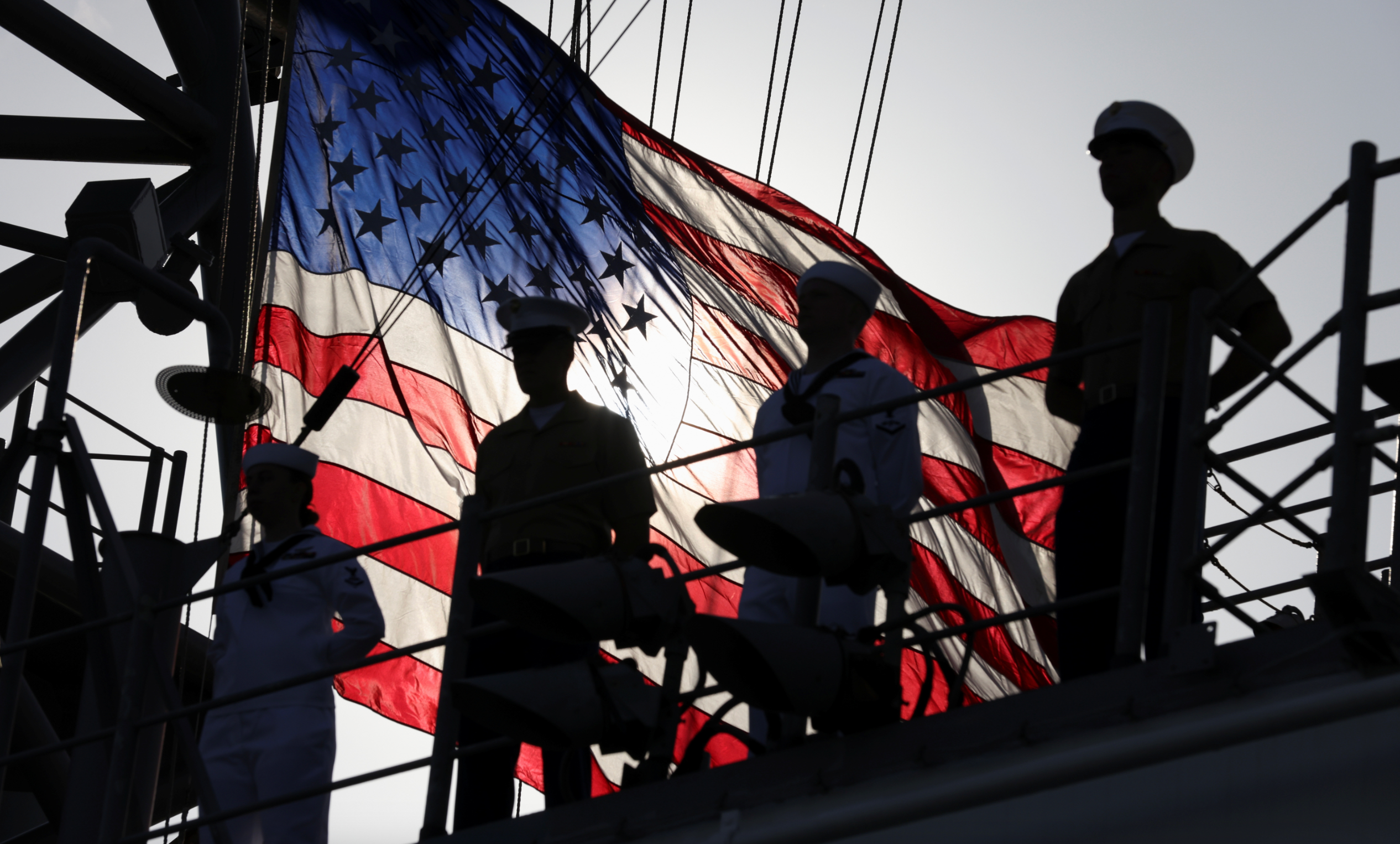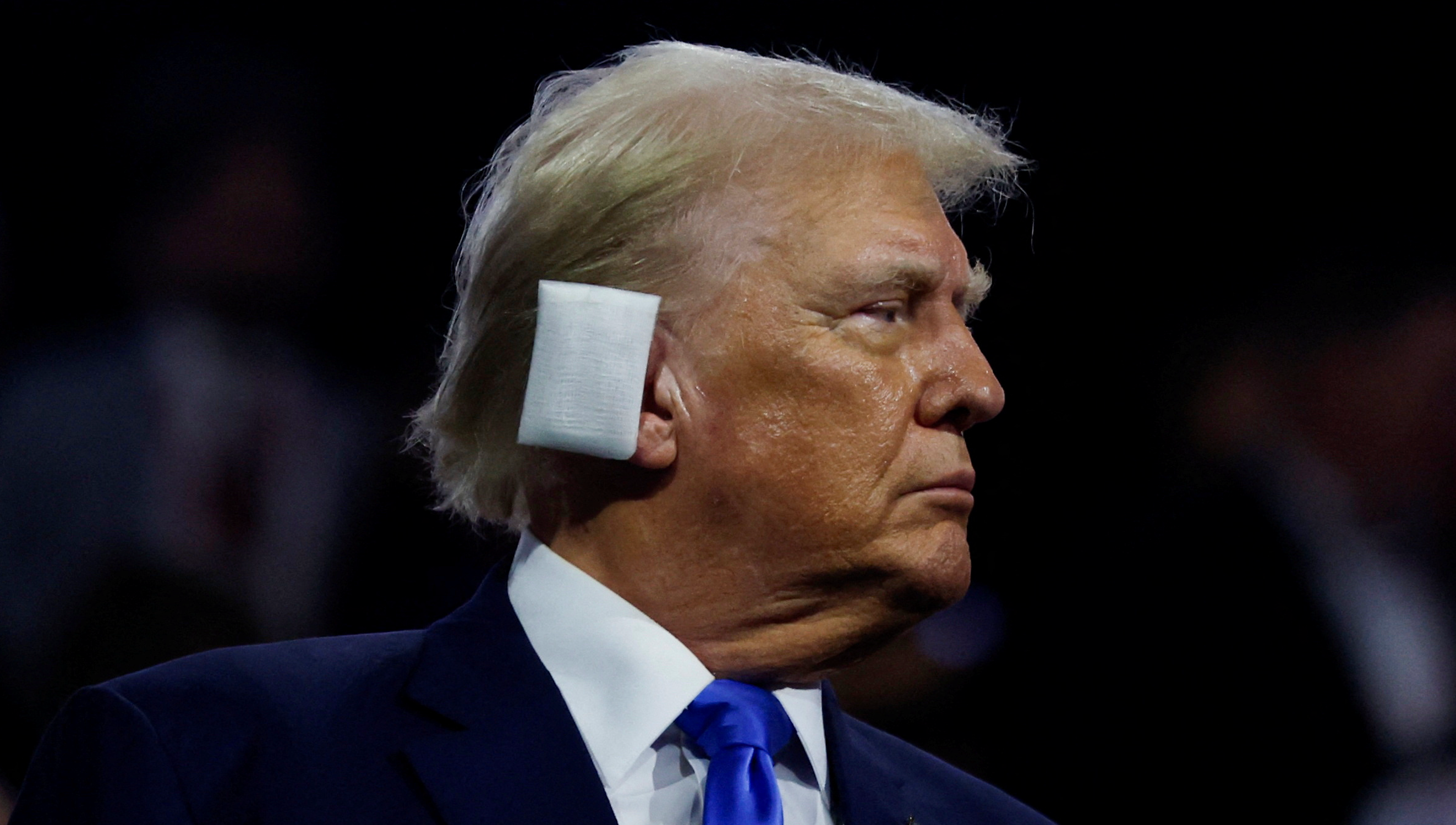
Israel bombards central Gaza as tanks advance deeper in Rafah
PHOTO CAPTION: Smoke rises from Gaza during sunset, amid the Israel-Hamas conflict, near the Israel-Gaza border, as seen from Israel, July 17, 2024. REUTERS/Ricardo Moraes
By Nidal al-Mughrabi and Hatem Khaled
CAIRO/GAZA (Reuters) -Israeli forces bombarded the Gaza Strip's historic refugee camps in the centre of the enclave and struck Gaza City in the north on Thursday, killing at least 21 people, and tanks pushed deeper into Rafah in the south, health officials and residents said.
A barrage of Israeli airstrikes killed 16 in Zawayda town, Bureij and Nuseirat camps and the overcrowded city of Deir-Al-Balah, the last major urban centre in Gaza not to be invaded by Israeli forces, health officials said.
In Gaza City in the north, medics said five Palestinians were killed in two separate strikes.
The Israeli military said in a statement its forces killed two senior Islamic Jihad commanders in two airstrikes in Gaza City, including one whom it said had taken part in the Oct. 7 attack in southern Israel that triggered the Gaza war.
In Rafah, residents said Israeli tanks advanced deeper in the western side of the city and took position on a hilltop there. The Israeli military said forces located several tunnels and killed several gunmen.
At Al-Amal Hospital, run by the Palestinian Red Crescent Society, in Khan Younis in southern Gaza, Palestinian health officials exhumed at least 12 bodies buried inside the medical facility to rebury them at another location.
Reuters footage showed medical workers digging up bodies from graves inside the facility, wrapping them in white shrouds before placing them inside vehicles for transfer to a new burial site as some relatives watched, some in tears.
Areej Hamouda, a mother of one of the dead, clutched some of the sandy earth from the grave of her son and kissed it before medics exhumed the body.
"They (Israel) shot him and he had a loaf of bread with him, which he had to beg for to get for his daughter, they shot him in the eye and the head - it rained on him, he was washed with blood," Hamouda said, weeping.
"He was (lying) there all day long, they weren't able to move him, (then) they pulled him with a rope when they brought him to be buried here."
STRETCHED TO BREAKING POINT
The fighting has pushed the 60-bed Red Cross field hospital in Rafah to the brink of capacity, the International Committee of the Red Cross (ICRC) said in a statement on Thursday.
"The repeated mass casualty events resulting from the unrelenting hostilities have stretched to breaking point the response capacity of our hospital – and all health facilities in southern Gaza – to care for those with life-threatening injuries," said William Schomburg, head of the ICRC's subdelegation in Gaza.
More than a million people had sought shelter in Rafah from fighting further north, but most have scattered again since Israel launched an offensive in and around the city in May to root out brigades of militant group Hamas operating there.
More than nine months into the war, Palestinian fighters led by Hamas are still able to attack Israeli forces on the ground, occasionally firing rocket barrages into Israel.
Islamic Jihad said it fired missiles at two southern Israeli communities on Thursday and the armed wing of Hamas said it fired mortar bombs at Israeli forces in southwest Rafah. There was no immediate comment from the Israeli military.
Israel vowed to eradicate Hamas after its militants killed 1,200 people and took more than 250 hostage in the Oct. 7 attack, according to Israeli tallies. More than 38,000 Palestinians have been killed in Israel's retaliatory offensive since then, Gaza health authorities say.
On Tuesday, Israel said it had eliminated half of the leadership of Hamas' military wing and killed or captured about 14,000 fighters since the start of the war. Israel says 326 of its soldiers have been killed in Gaza.
Hamas doesn't release figures of casualties among its ranks and said Israel was exaggerating to portray a "fake victory".
Diplomatic efforts by Arab mediators to halt the hostilities, backed by the United States, appear on hold, though all sides say they are open to more talks, including Israel and Hamas.
(Reporting and writing by Nidal al-Mughrabi in Cairo; additional reporting by Emily Rose in Jerusalem, Clauda Tanios in Dubai and Hatem Khaled in GazaEditing by Ros Russell)









